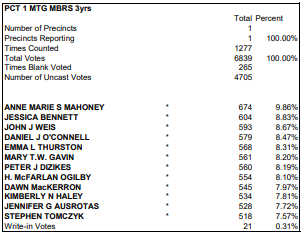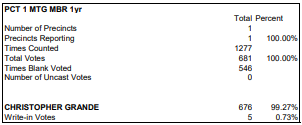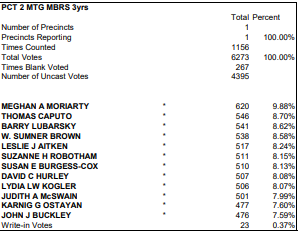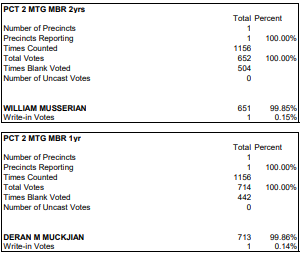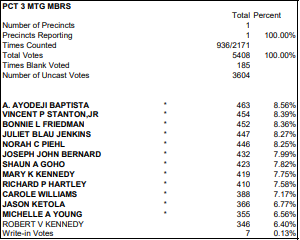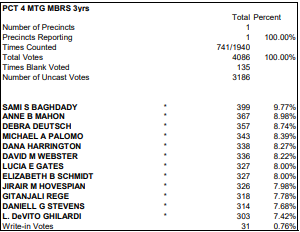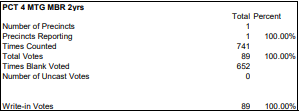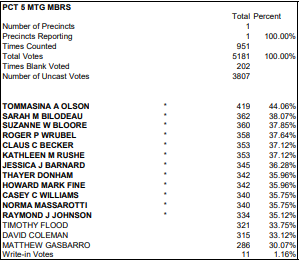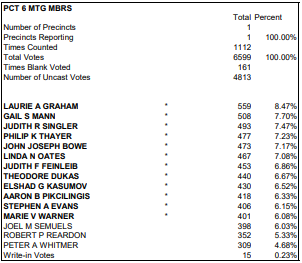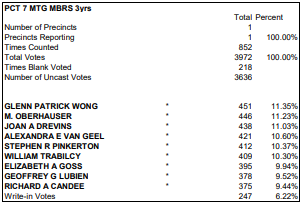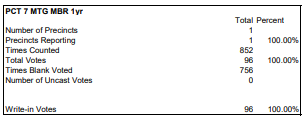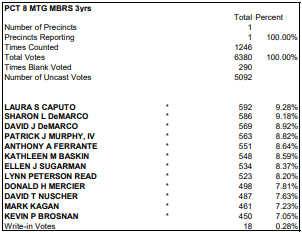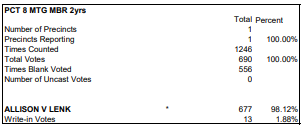Photo: John Phelan, superintendent, Belmont Public Schools
It was day two of “Belmont after No” as the town and its residents began coming to grips with austerity being the guiding policy for local governance in the unforeseeable future after voters rejected a $6.4 million override on Tuesday, April 6.
But to Schools Superintendent John Phelan, the reduction of millions in funding and pending teacher and staff layoffs is not going to cripple student learning for the upcoming school year beginning in September.
“There’s no panic on Pleasant Street,” said Phelan, referring to the location of the school district’s headquarters while speaking at a joint meeting of the Belmont School Committee Finance Subcommittee held virtually on Thursday, April 8.
“We’re going to reduce $2 million worth of expenses [but] the school department is not going to fall apart. I want every single family to know that their child will be taken care of next year. School will happen,” said Phelan, who praised both teachers and staff for their dedication to teaching during a pandemic and, now, job firings
Phelan reassured the committee and community that the approaching 2021-22 school year – which will start in person this September at each of the town’s six buildings – will be “on par” with the 2018-19 and “much better” than the current year of remote and hybrid schooling.
That’s not to say the cuts won’t be felt by every student that attends the district, said Phelan.
Cuts in activities and increase in class sizes
“Class sizes will be higher, and there’ll be some parts of your [student’s] day that won’t be available to you with clubs and activities that were in years past, but we will get through this,” said the superintendent.
The reality of the difficult decisions as a result of the austerity budget came when Phelan announced two rounds of RIF – a reduction in force – totaling 22 full-time equivalent positions. On April 30, educators hired in the past year to contend with COVID-related issues will be made redundant.
But it will be on May 15 when the gut punch to the district will be felt as 11 current teachers, staff, and administrators (totaling $635,000) will receive pink slips while an equal number of educators which the district had planned to hire ($870,500 in wages and benefits) will be set aside. The cost of $1.5 million in cuts is the loss of programs and activities, higher class sizes, and fewer teachers.
Just where the cuts will come will be determined this week by the district’s Leadership Council, made up of school principals and administrators. Earlier in the year, Phelan noted the district will not follow a “last hired, first fired” approach when determining who is let go. Rather, it will come down to where the need for teachers is greatest. With middle and high school numbers are expected to continue to grow while early elementary classes – such as kindergarten to first grade – are beginning to stay level, the greatest share of cuts will come from the cohort teaching kindergartens to fourth grade.
In addition, there is growing support in the district and on the committee to hire a new diversity director that is on the chopping block for next year as well as other positions the school committee believes “have value,” said Phelan.
If the committee feels those positions that were being cut or set aside are necessary, that would result in further reduction of teachers and staff beyond the 11 FTEs slated to be fired.
The staff reductions will be accompanied by nearly half a million dollars in cuts to all extra curriculum activities including clubs, music, theater, and sports district-wide. While no decisions on reductions have been made, discussions in the past few months pointed to possibly eliminating freshman sports teams while creating “intermural” programs in arts, music, and theater.
Revenues remain ‘fluid’
If there is a glimmer of hope for the beleaguered budget it was highlighted by Phelan and Town Administrator Patrice Garvin at the Warrant Committee Wednesday night acknowledging that funding for both schools and town “remains fluid.” Both point to the Massachusetts State Legislature which has yet to present its version of the 2022 state budget which includes Chapter 70 Local Aid. In addition, the town has been allocated $7.2 million in the American Rescue Plan Act signed by President Biden in March.
Yet the state legislature has yet to show any indication local aid will deviate far from Gov. Baker’s proposed $12.5 million to Belmont which the town is using as a placeholder in its budget calculations. And the federal government remains quiet on issuing guidelines for using the $7.2 million.
Even before the state legislature acts and the guidance on the ARP comes down, Phelan is in early talks with Garvin on possibly using those funds to “fill in the gap” in the school budget.
An example of this approach would be “to parlay those federal dollars into services that would help students in lieu of something that we might have to reduce” such as hiring a high school social worker to help with mental health issues related to the pandemic, said Phelan.
“We have a discussion with the town if there’s any way that the $7 million can be used for COVID-related issues,” said Phelan. “We know it’s really going to come down to whether or not those definitions of the four areas of expenditures for the town” which include responding to the coronavirus health impacts or economic impacts.
